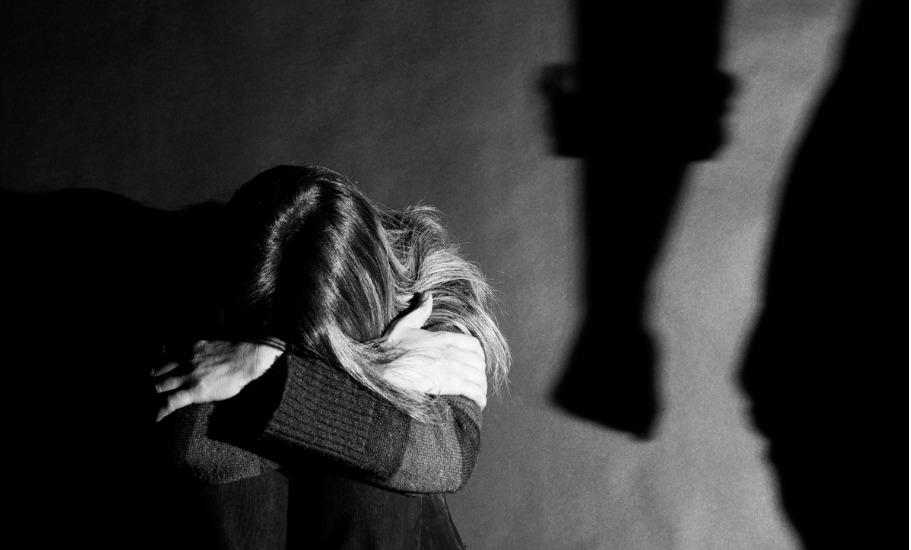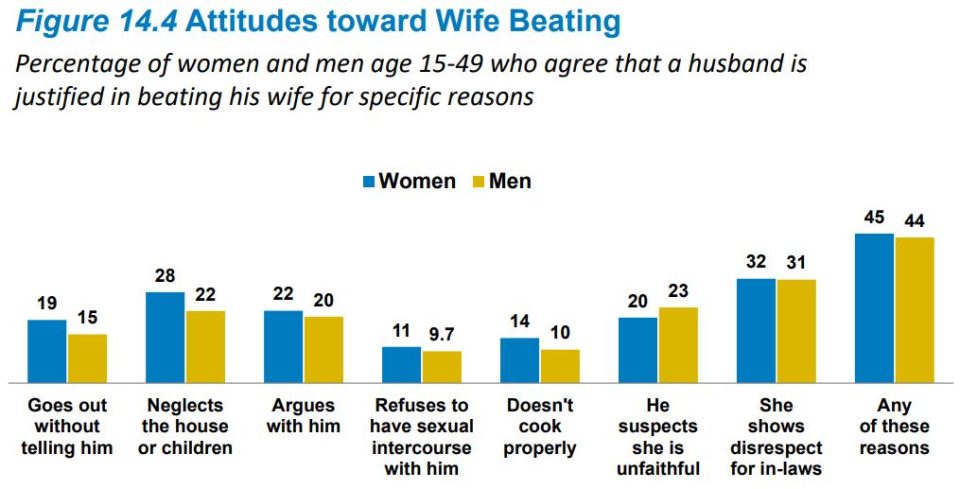
45% women, men justify beating wives: National Family Health Survey

The attitude toward wife-beating has changed since the last national survey in India but still, 45.4% of women and 44.2% of men believe that a husband is justified in beating his wife in at least one of the “seven specified circumstances”, according to the National Family Health Survey (NFHS – 5), 2019–21.
Women and men are both most likely to agree that a husband is justified in hitting or beating his wife if she shows disrespect for her in-laws (32% and 31%, respectively), and are both least likely to agree that a husband is justified in hitting or beating his wife if she refuses to have sex with him (11% and 10%, respectively), as per the survey.
Also read: Obesity increases in India, fertility rate dips: National Family Health Survey
In the report released by the Ministry of Health and Family Welfare (MoHFW), respondents were asked, “if they agree that a husband is justified in hitting or beating his wife under each of the following seven circumstances: she goes out without telling him, she neglects the house or the children, she argues with him, she refuses to have sex with him, she doesn’t cook food properly, he suspects her of being unfaithful, and she shows disrespect for her in-laws.”
The respondents who answered “yes” in at least one circumstance were considered to have attitudes that justify wife-beating. The sample included women and men aged 15-49.
“An important indicator of empowerment is the rejection of norms that underlie and reinforce gender inequality. One such gendered norm is husbands’ “right” to control their wives in various ways, including through violence. Rejection of such norms signifies greater gender equality,” the survey states.

It added that 45.4% of women and 44.2% of men believe that a husband is justified in beating his wife in at least one of the seven specified circumstances.
Attitudes toward wife beating have changed since NFHS-4 (2015-16). For women, agreement with any of the seven reasons justifying wife-beating has declined by 7 percentage points from 52 percent in NFHS-4; but for men, it has increased by 2 percentage points, from 42 percent in NFHS-4.
Agreement with wife-beating tends to increase with age for women but it decreases slightly with age for men.
For both women and men, agreement with wife-beating is lower in urban than rural areas and it tends to decrease with schooling and wealth. For example, agreement declines from 53% among women and 51% among men with less than 5 years of schooling to 38% among women, and 39 percent among men with 12 or more years of schooling.
Agreement with wife beating is lower among Jains (24%) than among any other subgroup of men.
There is a large variation across states in women’s and men’s agreement with wife-beating. For women’s agreement with at least one reason for wife-beating ranges from a low 9% in Dadra & Nagar Haveli and Daman & Diu, and 14% each in Chandigarh and the Andaman & Nicobar Islands, and 15% in Himachal Pradesh to a very high level of 78% in Tamil Nadu and 84% each in Andhra Pradesh and Telangana. The corresponding range for men is from 9% in Chandigarh to 82% in Karnataka, as per the survey.
Domestic violence
Meanwhile, 30% of women aged 18-49 have experienced physical violence since age 15, 6% have ever experienced sexual violence in their lifetime and 3% of ever-pregnant women aged 18-49 have experienced physical violence during any pregnancy, the survey said.
About 32% of ever-married women aged 18-49 have experienced physical, sexual, or emotional spousal violence. The most common type of spousal violence is physical violence (28%), followed by emotional violence (14%). 6% of ever-married women aged 18-49 have experienced spousal sexual violence.

